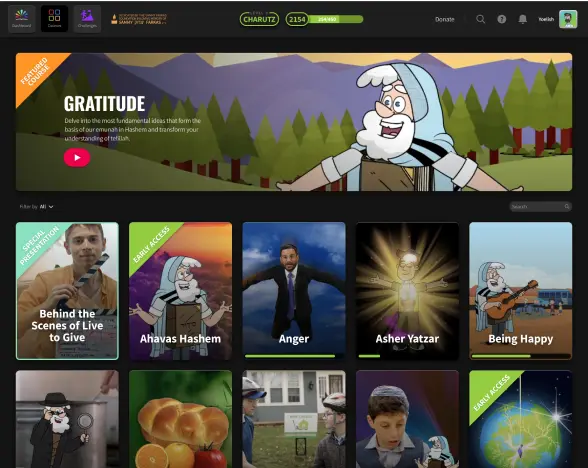
How Judaism Sees the World: From Entitlement to Empowerment
Have you ever found yourself asking, “Why isn’t the world giving me what I deserve?” Or maybe you find it easier to notice what you’re lacking, rather than the difference you could make around you. This mindset is more common than you think—and today, let’s flip it on its head.
In a world where we are flooded with messages about rights—human rights, student rights, the right to know, the right to be heard—it’s easy to get swept up in the current of entitlement. Social media, news feeds, and everyday conversations often sound like a chorus of “What do I deserve?”
But what if there’s another, more empowering way to see our place in the world?
Duties Over Rights: The Jewish Perspective
Judaism, fascinatingly, offers a countercultural approach. Our ancient texts don’t really talk about “rights.” In fact, the Hebrew Bible and classic Jewish sources don’t have a word for “rights” at all. Instead, the focus is on duties and responsibilities—on what we are here to do. Rather than chasing entitlements, Judaism teaches us to seek out where we can make a positive impact.
Consider the giving of the Ten Commandments: not a “Bill of Rights,” but a call to action—guidelines for living a life of meaning. Even charitable giving is framed not as the poor demanding help, but as the privileged being obligated to give. It’s a subtle but powerful shift—from “What do I get?” to “How can I give?”
The Psychology of Giving: Science Meets Torah
Modern psychology agrees! Studies reveal that people who focus on contribution, purpose, and responsibility lead happier, more fulfilling lives. Dr. Adam Grant, an organizational psychologist, spent decades researching what drives satisfaction at work and in life. The overwhelming answer? Meaning.
Even Viktor Frankl, the famed neurologist and Holocaust survivor, found that the greatest motivator isn’t pleasure or power, but finding meaning. Those who survived unimaginable hardships often did so because they clung to a sense of responsibility—to family, community, or something greater than themselves.
Shifting the Conversation: A Relatable Example
Imagine two students, Sarah and Amir. Both study for a big exam, but Sarah constantly asks, “Is the teacher being fair? Do I have the right to get good grades?” While Amir thinks, “What more could I do to help the class? Can I tutor a friend or contribute to a group project?”
Over time, Amir feels more connected, confident, and resilient. His focus on contribution—even in small ways—gives him a lasting sense of purpose, while Sarah finds herself stuck in frustration and disappointment.
Taking Responsibility, One Step at a Time
You don’t have to overhaul your life overnight. Try these actionable steps to build a sense of purpose:
- Ask “What can I do?” not “What am I owed?” Each day, look for one situation where you can give—whether it’s helping a friend, volunteering, or even just listening to someone who needs support.
- Start a “Contribution Journal.” At the end of each day, write down one way you made someone else’s life a little better. Over time, you’ll spot patterns that feed your self-esteem.
- Practice gratitude. List what you already have, and celebrate even the smallest contributions you make. Gratitude and giving go hand-in-hand.
Remember, every big change starts with tiny steps. The power of Judaism’s worldview is that anyone—no matter their circumstances—can find fulfillment by shifting from entitlement to empowerment.
Making It Personal: The Ripple Effect
When you act with responsibility, you not only improve your own life, you inspire positive change in everyone around you. The questions you ask yourself—“How can I help? Where can I make a difference?”—create ripples that transform families, communities, and the world itself.
So, tomorrow, when life presents its challenges, try swapping “Where’s my piece?” for “What can I build?” That’s the Jewish way to change the world, starting with yourself.
Ready for more soulful, uplifting content that makes growth fun? Dive into Torah Live! Sign up for free and unlock a world of clean, 100% fun videos, games, and challenges for all ages. Join Torah Live now!
Keep exploring, keep questioning, and keep building a better you. See you next time!
